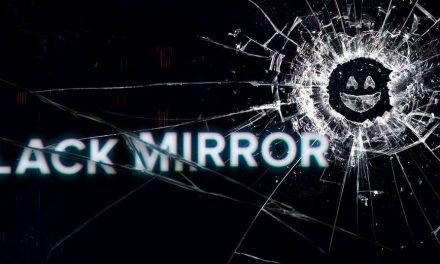Panel Proposal
Forty-Seventh Annual Conference of the German Studies Association
October 5-8, Montréal, Québec, Canada
From various ARD- and ZDF-Themenabende on “deutsche Glaubenskrieger” or “Die Islamdebatte”, to Fernsehfilme like Unterwerfung and Fernseh- and Streaming-Serien from Türkisch für Anfänger to 4 Blocks, to Friedrich Merz’ recent “kleine Paschas” statement on the Markus Lanz talkshow, German television and post-television, narrative and non-narrative alike, envision “Islam as news,” to quote Edward Said. Programming perpetuates, engages, re-negotiates, and interrogates discursive formations of Orientalism and Islamophobia in a style that interweaves entertainment and ethnographic desires: to a point, where the question of small screen genres and modes of Orientalism or Orientalism as a specifically small screen genre or mode –
in its own ideological and poetological ‘right’ (or wrong) – might be deserving of further exploration and critique. While 19th and early 20th century Orientalism is that of Rudolf Ernst, Flaubert, popular fictions à la Karl May, and also cinema, it is not far-fetched to claim that what the Western and Central European general public of the late 20th and 21st centuries comes to know about the Islamicate world and Islamicate diasporic populations is the result of, in Said’s words, “electronic journalism industries,” or all kinds of entertainment and infotainment formats that can be consumed from the comfort of an armchair: Thus, this panel seeks to investigate small screen formats – from the German-speaking world – in their political and aesthetic relation to and production of discourses and sensibilities of Orientalism (and Islamophobia). This could potentially encompass films-made-for-television, drama and comedy series, web series, telenovelas/soaps, reality TV, talk shows, as well as hybrid formats such as the Themenabend, often fusing fiction, non-fiction, and talk show.
Paper topics may address, but are not limited to, and encouraged to go beyond what is proposed here:
- Series, e.g. Bruder: Schwarze Macht, Munich Games, Eden, Dogs of Berlin, Skylines, etc.
- Fernsehfilme, e.g. Die Neue, Die Freischwimmerin, Der Hodscha und die Piepenkötter, Takiye – Spur des Terrors, Wiener Blut, etc.
- The Tatort and Polizeiruf series, e.g. Der Wüstensohn, Zorn Gottes, Baum der Erlösung, Denn sie wissen nicht, was sie tun, etc.
- Specials of Krimi-Filmreihen, e.g. Bloch – Inschallah, Helen Dorn – Gefahr im Verzug, Kommissar Pascha, etc.
- Crime clan dramas, e.g. 4 Blocks, Asbest, Gegen die Angst, Die Informantin, etc.
- ARD- and ZDF-Themenabende such as Unterwerfung, Saat des Terrors, etc.
- Soaps such as Lindenstraße and GZSZ
- Talk shows and populism
- Counter- and Re-Orientalism, i.e. Datteltäter, Druck, Para – Wir sind King, Lamia, etc.
- Questions of ethnosexism (Dietze) and femonationalism (Faris)
- The trope of intercultural romance (Meine verrückte türkische Hochzeit, Einmal Hans mit scharfer Soße, Zimtstern und Halbmond, etc.)
- The question of conversion, e.g. Die fremde Tochter, Der verlorene Sohn, Macht euch keine Sorgen, Für meinen Glauben, the Lindenstraße episode “Islam,” etc.
- Period pieces such as Omer Pascha and Kara Ben Nemsi Effendi
- The construction of Islamicate civilization in history documentaries à la Terra X, Die Deutschen, Peter Scholl-Latour’s Das Schwert des Islam, etc.
Please submit an abstract (300 words) and short bio to Christian David Zeitz (christian.zeitz@mail.utoronto.ca) by March 1, 2023.





